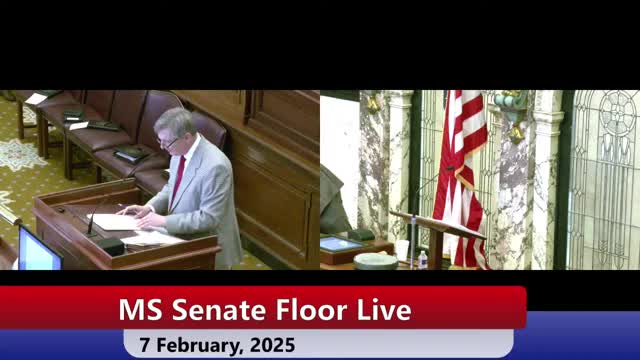Senate committee substitute seeks broad new tools to limit camping, solicitations and encampments; debate centers on services and enforcement
Get AI-powered insights, summaries, and transcripts
Subscribe
Summary
A Senate committee substitute would create misdemeanors for certain camping, loitering and aggressive panhandling activities, authorize permits for solicitation and require evaluation and referral for mental-health or substance-abuse services for detainees who appear in need.
The Senate on Monday debated a sweeping committee substitute intended to give local governments and law enforcement more tools to address public encampments, aggressive panhandling and related behaviors while adding requirements to connect people to social services.
Chairman Fillinghain, who led the bill’s development, described the measure as an omnibus response to complaints from municipalities across the state. The committee substitute would make it unlawful to camp on public property in certain circumstances, require a 48-hour written notice before further enforcement for identified encampments, and treat repeated camping as a misdemeanor with graduated fines and possible jail terms. It would also designate camping violations as a public nuisance that a prosecuting attorney could enjoin and would authorize municipalities and counties to remove encampments on private property when owners request assistance.
The substitute requires a permit from the appropriate local governing authority to solicit contributions on streets, sidewalks or public rights-of-way. It also creates misdemeanors for loitering and aggressive panhandling — the latter would include touching a person, blocking movement or otherwise creating an intimidating approach — with higher penalties for repeated offenses. Importantly, the measure says convictions under the new act shall not appear on a person’s public record, though courts and law enforcement may maintain confidential records to track repeat offenders.
A central and recurring theme in floor debate was treatment and services. An amendment led by Senator Norwood and accepted by the committee requires that any person arrested and brought to a local jail who appears to be in need of mental-health or substance-abuse services be evaluated and, if appropriate, connected to services. Chairman Fillinghain said testimony at committee hearings indicated about 85 percent of people in these situations have substance-abuse or mental-health problems or both; the committee added the evaluation language to avoid creating a purely punitive system.
Several senators pressed on implementation and whether the bill would effectively criminalize homelessness. Senator Norwood, Turner Ford and others pushed for proactive service connections and questioned whether jurisdictions such as Jackson already bear an outsized burden. Senator Horne raised concerns about county jails under consent decrees and whether the measure would place further strain on local detention resources. Fillinghain argued that the status quo — limited options for law enforcement confronting encampments — was untenable and that early intervention and connecting people to treatment would reduce more severe outcomes and downstream criminal cases.
Senator McMahon urged a reverse repeal and additional amendments so the bill could be refined over the coming days; several senators indicated they would offer adjustments including the reverse repeal. The bill’s sponsor and committee said they will continue accommodating amendments and expected further floor work.
Why it matters: The substitute seeks to standardize local authority to remove encampments, regulate solicitation, and provide pathways to mental-health and substance-abuse support — measures that will affect municipalities, law enforcement, shelters and vulnerable individuals.
Actions: Committee substitute adopted; subsequent amendments and final action were pending continuation in the record and sponsors asked for a motion to reconsider to allow further amendment work.
Speakers and attributions below are limited to those recorded in this meeting’s transcript and used for direct quotes.
